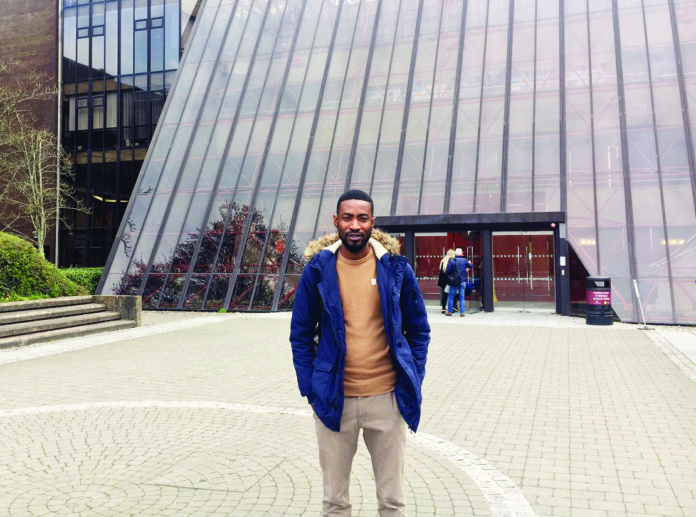
Ibrahim Sorie Kabba made an application to work as a night porter at Mount Trenchard Direct Provision Centre near Foynes in County Limerick.
“I kind of thought that I wasn’t going to get it because I’m an asylum seeker and who is going to hire me to work in another asylum centre?”
Ibrahim wondered what the reaction to his application might be but was pleasantly surprised to be asked to interview for the job.
The interview was going well until he was asked if he had the right to work in Ireland.
Ibrahim said he had and showed the interviewer the temporary work permit issued to him by the Department of Justice.
The potential employer kept flipping the document over in confusion for a few moments.
“I’ll get back to you,” he told him.
This sentence would come to signal disappointment for Ibrahim throughout his job search.
A native of Sierra Leone, Ibrahim is one of the 1,845 asylum seekers who have been granted permission to work in Ireland, according to a report released by Ombudsman Peter Tyndall in March 2019.
The right for asylum seekers to work was transposed into law on July 2, 2018 after the Supreme Court declared that Ireland’s ban on employment was unconstitutional.
Ibrahim’s strongly held belief is: “If you allow people to work, they don’t have to rely on the state.”
Aideen Roche works with Doras Luimní, a non-profit based organisation on O’Connell Street, Limerick that focuses on promoting and protecting human rights.
She said: “The overwhelming majority of people we work with are very keen to access employment and to have an opportunity to meaningfully contribute to society, to meet people and to have a means to support themselves.”
Ibrahim, who currently lives at the Knockalisheen Direct Provision Centre in Meelick, Co. Clare, has been in Ireland for two years and was one of the first people to be granted permission to work as he applied on the day it was announced.
With an honours degree in Environmental Science and five years’ experience working for a research firm, Ibrahim found it difficult to be out of work.
He said: “ I was sitting in the hostel not being able to do anything – just eating and sleeping, eating and sleeping. For me it was very depressing because I used to have a very active life, so I had to get myself doing something.”
Ibrahim was hopeful that his new work permit would change his life in Ireland.
However, the reality of job hunting for Ibrahim and for many asylum seekers like him was not plain sailing.
He applied for jobs in his field but found he was getting no response. He decided to lower his expectations and started to apply for any job he felt he may be qualified for.
Ibrahim was called to interview for a few jobs but he soon realised that the interviewers weren’t familiar with his type of work permit.
He said: “ The work permit sends out red flags. It’s difficult for employers to take a risk and get their companies into trouble.
“When I’m competing with so many other candidates there is no need for a HR office to spend time to investigate my permit.
“That was kind of like a shot in the leg.”
After months of being shot down, Ibrahim followed advice from a friend and applied for the one year Access Programme at the University of Limerick.
His goal is to eventually study Environmental Policy at postgraduate level. He is in the process of applying for a Sanctuary grant which provides financial support to first-time higher education applicants who identify as refugees or asylum seekers.
Nevertheless, Ibrahim is still eager to get a job and start earning.
“Even if I don’t get accepted to the Sanctuary postgraduate programme, at least I could work and save up towards it and pay my own way.”
Ibrahim believes the situation for asylum seekers is getting better since he began his search last year as word is getting around to employers that these work permits are valid.
“What I think needs to be done is to have a direct channel of communication between asylum seekers and potential employers because most of the people in centres have skills and they don’t know how to go and get the jobs that are out there.”
Ibrahim has recently received some good news as he has been offered a job as a cleaner beginning in May for five months.
“There’s a saying where I’m from: ‘beggars can’t be choosers’.
Being able to earn is not about the job description. It gives me the capacity to do something with my life.”










